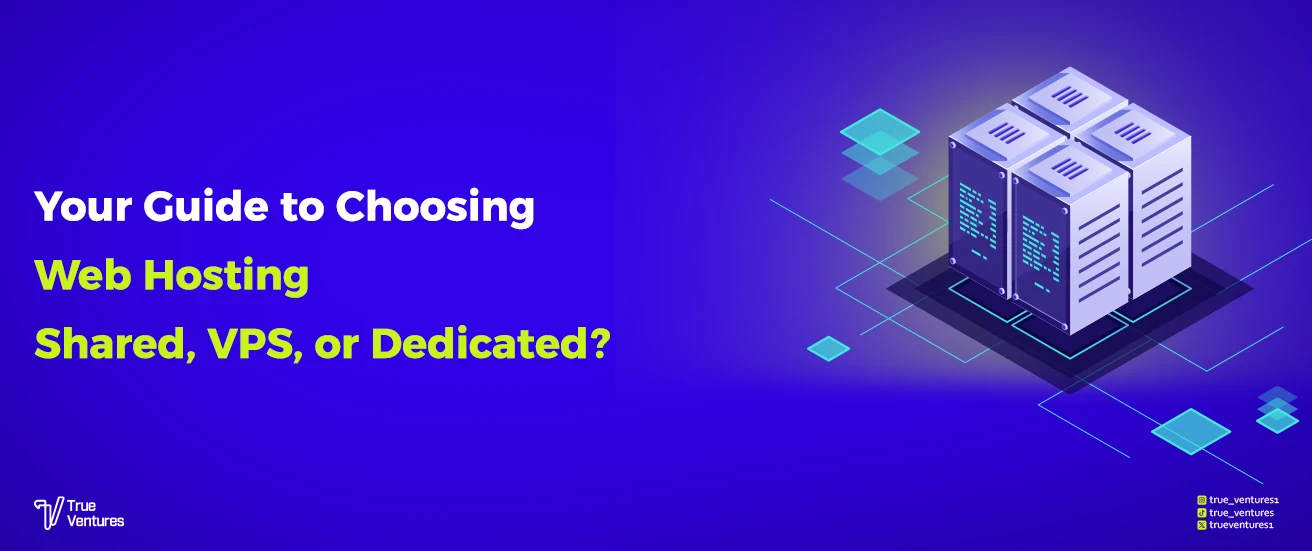To learn more about the difference between cloud hosting and traditional hosting, you can read
our article: Traditional vs Cloud Hosting: Which Powers Your Success?

When launching a new website, one of the most critical decisions you’ll face is how to choose web hosting that matches your needs. Web hosting is not just rented space on a server; it directly impacts your site’s speed, security, and the overall experience visitors have when browsing your pages.
There are several hosting plans to consider. Shared hosting is often suitable for small projects or beginners, while VPS hosting provides more flexibility and control as your site grows. For large-scale businesses or high-traffic platforms, dedicated hosting stands out as the most powerful and reliable option.
Ready to get started? Explore our recommended Web Hosting Service today and launch your site with confidence.

Web hosting is the service that gives your website a real presence on the internet. When you design a site, the files are simply stored on your personal computer, meaning no one else can see them. By subscribing to a hosting service, those files are stored on a server that runs 24/7, making your website accessible to anyone worldwide just by typing its address into a browser.
In other words, hosting is the foundation that transforms your digital idea from static pages into an interactive, live website. Whether you’re launching an online store or a personal blog, visitors can only reach it through a reliable web hosting provider that keeps your site secure, active, and always available.
When you start building a website, you’ll quickly notice that providers offer different packages known as hosting plans. These plans are tailored to match various needs, whether it’s running a small personal blog or managing a large-scale e-commerce store.
The main difference between plans lies in the resources they provide: storage capacity, bandwidth limits, the number of websites you can connect to, as well as the level of security and technical support. That’s why choosing the right plan isn’t just about price, it’s about finding the option that aligns with your project’s size, goals, and performance requirements.
For example, shared hosting is often the most affordable choice for beginners who want to launch a simple site. On the other hand, larger businesses may require VPS hosting or even dedicated hosting to ensure faster performance, higher flexibility, and full control.

Shared hosting is one of the most popular hosting plans for beginners and small websites. In this setup, multiple sites run on the same server and share resources such as storage space and bandwidth. The main advantage is affordability; it’s one of the cheapest ways to choose web hosting, making it easy for anyone to start building an online presence. It’s also simple to set up and manage, even without advanced technical skills.
However, there are limitations to keep in mind. Since resources are shared, a sudden spike in traffic on other sites hosted on the same server can slow down your website’s performance. This makes shared hosting less suitable for projects expecting rapid growth or requiring high stability. Still, it remains an excellent option for personal blogs, small online shops, or test websites that don’t need heavy resources.
VPS hosting runs your website on a virtual private server created by dividing a physical machine into multiple independent environments. Unlike shared hosting, you’re allocated dedicated portions of resources such as CPU and RAM, which ensures more stable and consistent performance.
One of the biggest advantages of VPS is the flexibility you have, greater control over server settings and can scale resources as your site grows, without immediately jumping to the higher cost of dedicated hosting. However, VPS typically comes at a higher price than shared plans and often requires some technical knowledge to manage server configurations effectively.
Overall, VPS hosting is an ideal choice for medium-sized projects or websites that have outgrown shared hosting and need stronger performance, without the expense of a fully dedicated server.
Dedicated hosting means your website has an entire server exclusively for its use, no sharing of resources with anyone else. This setup delivers maximum power, top-level security, and complete control over configurations to match the exact needs of your project.
Thanks to these capabilities, dedicated hosting is the go-to choice for large enterprises, high-volume e-commerce stores, or any project that demands outstanding performance and long-term reliability.
Selecting the right hosting isn’t a random decision; it requires a clear assessment of your site’s needs and long-term goals. Before committing to any hosting plan, consider these key factors:
Don’t just think about your current needs, plan ahead. Choosing the right web hosting from the start will save you time, money, and effort as your website grows.
Now that you understand the differences between shared hosting, VPS hosting, and dedicated hosting, the smartest approach is to begin with a plan that matches your current stage, then upgrade as your website grows in size and traffic. This way, you’ll keep your site stable while investing your budget wisely.
Ready to take the next step? Explore our recommended Web Hosting Service and launch your website with confidence today.
Before you decide on your hosting plan, here are the key questions you need to know the answers to—so you can choose reliable and suitable web hosting with confidence.
Web hosting is the service that makes your website available online by storing your files and data on a server. Whenever someone types your site’s address in their browser, the hosting service delivers those files so visitors can access your website.
Hosting plans are the packages offered by hosting providers. They come in different types, such as shared hosting, VPS hosting, and dedicated hosting. Each plan varies in price and resources, depending on your specific needs.
Shared hosting is ideal if you’re just starting out or running a simple site like a blog or personal page. It’s affordable and easy to manage, but since you share server resources with other websites, performance may drop if traffic spikes.
In shared hosting, many websites share the same server resources. With VPS hosting, the server is divided into independent virtual environments, giving you guaranteed resources and better performance—though at a slightly higher cost.
Because dedicated hosting gives you an entire server exclusively for your website. This means maximum performance, higher security, and full control over configurations. It’s best suited for large companies or e-commerce stores with heavy traffic.
Focus on four key factors: your website’s size, expected traffic, budget, and required security level. For small sites, start with shared hosting. For medium projects, VPS hosting is often the best choice. For large-scale websites, dedicated hosting is the ultimate solution.

In a world where mobile apps shape our daily routines, ordering desserts no longer means...

With the rapid growth of internet usage, a company’s website has become the cornerstone of...

In today’s fast-paced digital world, having a well-designed e-market application is no longer optional it’s...